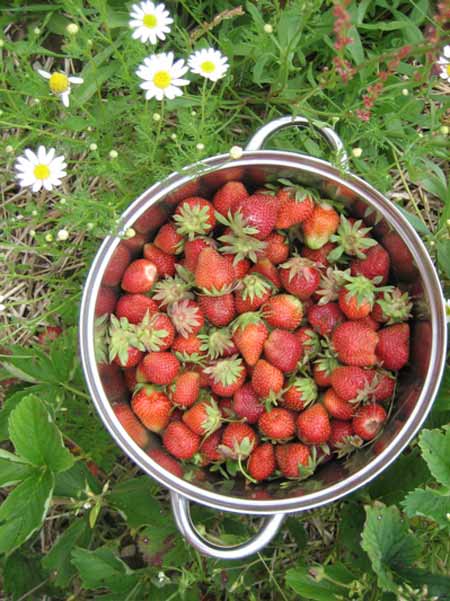Why Children Make Better Hunters Than Gatherers

The strawberries are ripe in Central New York, so last week my 9-year-old daughter and I threw our pails into the car and headed out to the local berry farm. Picking strawberries is the perfect job for kids; the bushes are low to the ground and all you have to do is move down the row, spot the red blobs, pull gently and then drop them into the pail. Yet, as soon as we began our scuttle down the row, I started to give commands—“Don’t bend over, crouch down.” “Move more quickly down the row.” “Don’t pick the ones that are half green”—as if my daughter were an imbecile. And I should know better. Children, anthropologists have shown, are actually really good at hunting and gathering. For example, Rebecca Bliege Bird and Douglas Bird of Stanford University have watched adults and kids on the Meriam Islands in the Eastern Torres Straight, Australia, and kept track of the skill and energy to takes to find food. Children, the Birds have discovered, are surprisingly good hunters; they know how to find good fishing spots, can bait a hook all by themselves and can spear a fish with the aim of an adult. More interesting, no one needs to teach children how to hunt—they just watch and learn. Kids are also good at gathering, but it takes growing time for them to become energetically efficient. Young children can easily spot shellfish, and they can obviously bend over and pick a shell up, but the gathered calories young kids bring home are negligible. The key, the Birds claim, is that it takes a lot of walking to cover enough reef to fill a basket with shellfish, and little legs get tired. Little minds also get distracted by all the non-edible things that swim and crawl across a shallow reef. But once kids get a little older and more focused, and they can heft a basket full of heavy shellfish, they do just as well as adults. The Birds' point is that gathering is not something that children have to learn; any person, big or small, can judge what should be gathered and how to pick, pluck or dig it up. But gathering often takes stamina and strength, and kids have to grow into it physically. Since I planned to carry the pails full of strawberries to the car, and we were driving home, I should have kept my mouth shut and spent my energies on picking fruit rather than pontificating—at least until my kid became distracted by all the fun things that wriggle and fly through a strawberry patch. Meredith F. Small is an anthropologist at Cornell University. She is also the author of "Our Babies, Ourselves; How Biology and Culture Shape the Way We Parent" (link) and "The Culture of Our Discontent; Beyond the Medical Model of Mental Illness" (link). Related Stories:
- 16 Organic Apples and a Gallon of Gas
- Top 10 Mysteries of the Mind
- Ten Things You Didn't Know About You
Sign up for the Live Science daily newsletter now
Get the world’s most fascinating discoveries delivered straight to your inbox.









